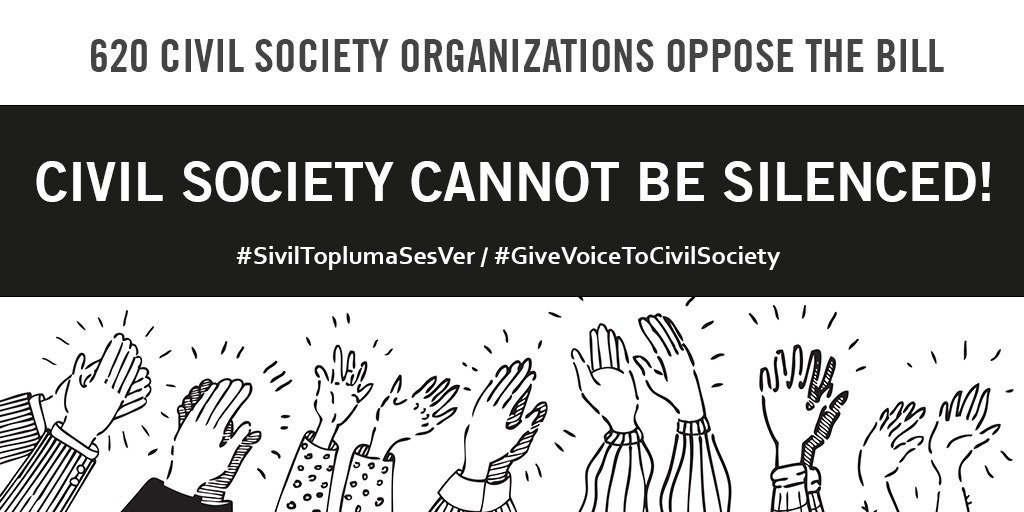Open letter to EU High Representative Borrell and EU Council President Michel ahead of their meetings with Turkish Foreign Minister Mevlüt Çavuşoğlu on 21-22 January 2021.
Dear High-Representative Borrell and President Michel,
As you meet with Turkey’s Foreign Minister Mevlüt Çavuşoğlu on 21-22 January, EuroMed Rights calls on you to express urgent concern regarding the precarious state of civil society and human rights activism in Turkey.
Civil society is suffocated over there. Thousands of women and men fighting for democracy and human rights – all values heralded by the EU – are rotting in jail under bogus charges. Osman Kavala is one of them but thousands more face similar conditions. Human rights defenders are targeted by smear campaigns fuelled by a toxic political discourse, while opaque executive orders and a repressive legal framework are used to crack down on their legitimate human rights work.
The latest example is the “Law on preventing financing of proliferation of Weapons of Mass Destruction” (WMD). Passed on 27 December 2020 under the disguise of tackling the issue of WMD and painted as an effort to bring Turkish law into compliance to the UN Security Council counterterrorism resolution 1373, this law is a threat for NGOs, associations or organisation seeking to defend human right values and the democratic process. It introduces restrictions and strict oversight rules, it allows the Ministry of the Interior to replace the heads of any NGOs allegedly accused of bogus terrorism charges while seeking court restrictions on the activities of civil society organisations. Foreign organisations are not exempt from it.
As one of Turkey’s closest neighbour and as its leading trade partner, the European Union has a responsibility to raise these issues, in accordance with the recently adopted EU Action Plan on Human Rights and Democracy and the EU guidelines on Human Rights Defenders, which read: “The EU will underline its support for human rights defenders and their work, and raise individual cases of concern whenever necessary”.
As high-level representatives of the European Union raise your voices against the trampling of values long defended by this Union. The people of Turkey and Europe expect no less of you.
Background Information
EU High Representative for Foreign Affairs and Security Policy Josep Borrell and EU Council President Charles Michel will receive Turkish Foreign Minister Mevlüt Çavuşoğlu respectively on 21 January and 22 January 2021. This is the second meeting in less than two weeks between high-level EU representatives and authorities from Turkey as, on 9 January, President Erdoğan held a video-conference with European Commission President von der Leyen, stressing the need for an update of the EU-Turkey 18 March 2016 statement. President Erdoğan made it clear that he would continue to make use of this agreement as a political leverage to threaten EU and Member States in their relations.
The meetings with Mr Çavuşoğlu are taking place during a very dense agenda for the scrutiny of the respect of human rights in Turkey: on 21 January, the plenary session of the European Parliament will discuss an urgent resolution on the situation of human rights, with a focus on prisoners of conscience in the country. On 27 January, the Parliamentary Assembly of the Council of Europe will debate the adoption of the report on “Restrictions on NGO activities in Council of Europe member States”.
Mr Çavuşoğlu’s visit follows the adoption, on 27 December 2020 by the Turkish Parliament, of the “Law on Preventing Financing of Proliferation of Weapons of Mass Destruction.” According to the ruling Justice and Development Party, the law is meant to ensure Turkish compliance with the UN Security Council counterterrorism resolution 1373 (2019 mutual evaluation report by Financial Action Task Force). . However, only 6 of its 43 articles deal with the subject. The rest introduce restrictions and strict oversight rules affecting NGOs, business partnerships and associations, and fundraising. Under the new law, the Ministry of the Interior can replace the heads of NGOs who face terrorism charges and can seek restrictions on the activities of those organisations in court; the government commonly uses terrorism charges to target and silence outspoken activists, journalists, scholars, artists, and lawyers. The law also allows for annual government inspections of foundations and particularly targets foreign organisations. The investigations are conducted by MASAK, Turkey’s financial crimes investigation board, directly attached to the Ministry of Finance: since the 2016 attempted coup there has been an exponential rise of judicial requests from public prosecutors and judges. The law is chillingly similar to so-called ‘foreign agents’ legislation used in Russia and other measures used by repressive governments in the region to silence NGOs and strip away fundamental rights.

